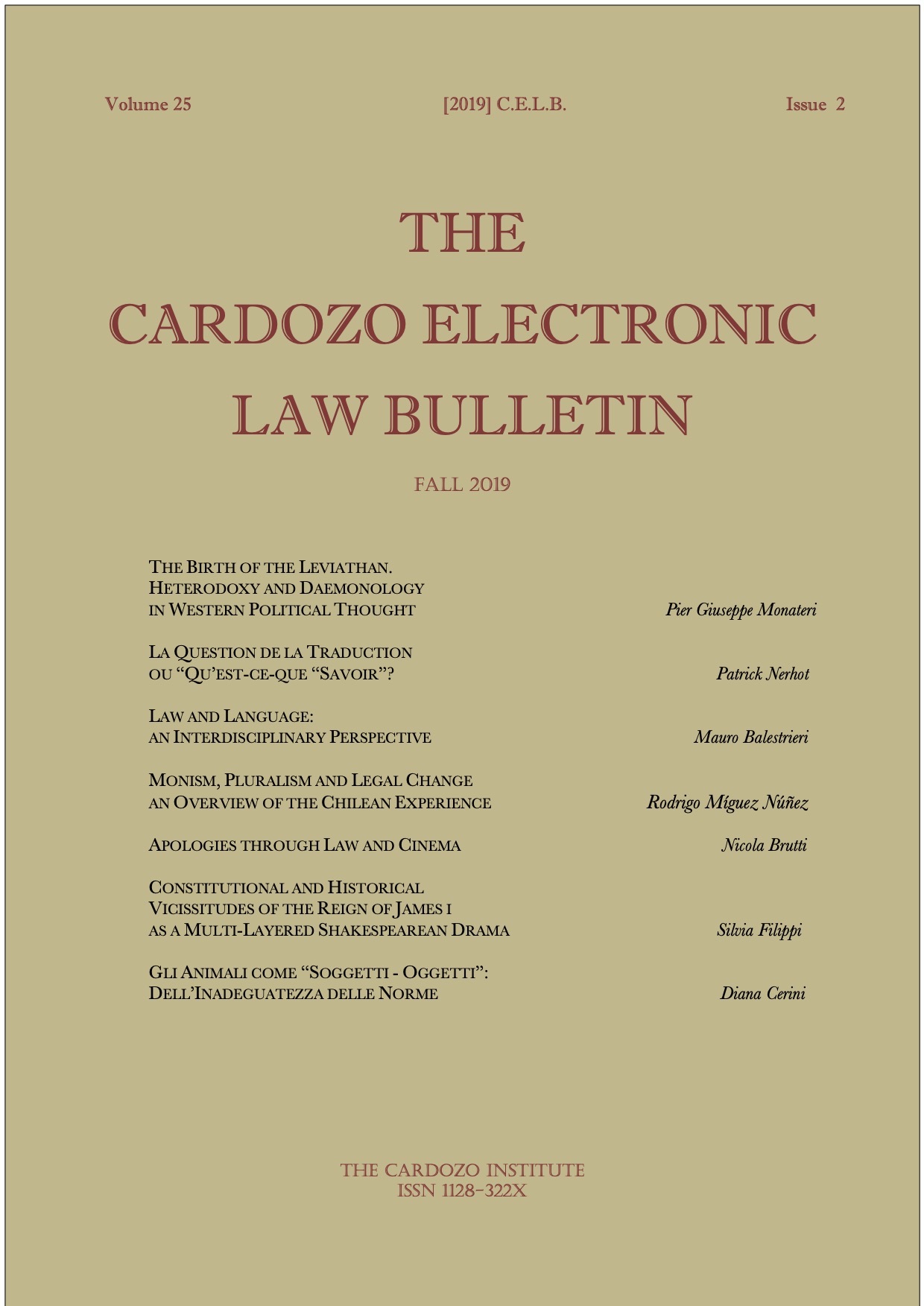Law and Language: An Interdisciplinary Perspective
DOI:
https://doi.org/10.13135/1128-322X/6147Keywords:
language, law, legal realism, cultural studiesAbstract
In a famous passage of his 1919 essay The Uncanny, in an attempt to elucidate the meaning of the German word “Das Unheimliche”, Sigmund Freud concluded that any effort would have be in the end vain for the simple reason that «we ourselves speak a language that is foreign». With this paradoxical statement, Freud disclosed the radical alterity which exists between human beings and language. Even if usually we think about linguistic expressions as the cultural device which represents par excellence the real condition of human life, language could prove to be something elusive and mysterious. Our legal tradition has always grounded its cultural and political existence upon language: since the times of the German historical school, language, law and society were considered strictly intertwined. Anyway, with the coming of postmodernism and globalization, as well as of complex political frameworks, this simplistic narrative has been progressively thrown into crisis. Following authors like Saussure, Benveniste, Foucault and Appadurai, as well as the precious insights provided by the Legal Realist movement, this paper aims to investigate the conflicting connection which nowadays takes place in legal and economic discourses. If it is true that traditionally law and language appear so strictly intertwined, every deconstruction of legal words casts its dark shadows upon our material and concrete existence: the erosion of legal language necessarily leads to a certain loss of fundamental rights, that is, of justice. In the age of “surmodernity” – as the French anthropologist Marc Augè called it – language becomes then a testing ground for verifying the evolution of contemporary sovereignty.




